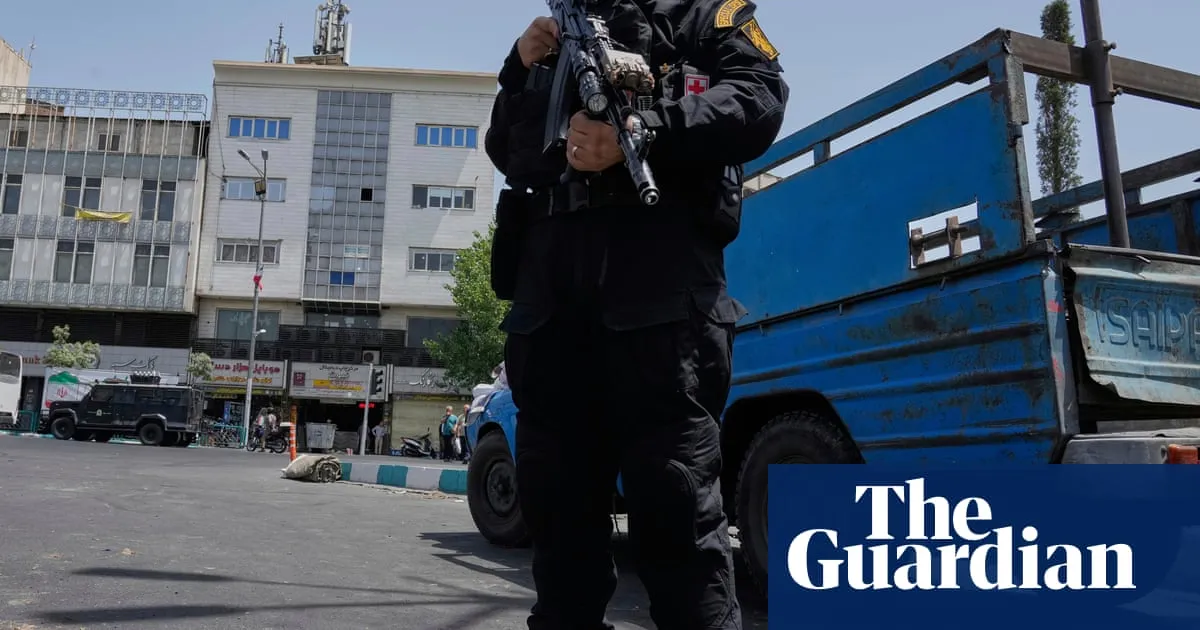
In a significant shift from a potential ceasefire with Israel, Iranian authorities are ramping up an internal security crackdown throughout the nation. This crackdown is characterized by mass arrests, executions, and military deployments, particularly in the volatile Kurdish region, according to various officials and activists.
Within days of the commencement of Israel’s airstrikes on June 13, Iranian security forces initiated a widespread campaign of arrests. This campaign has been accompanied by an increased street presence, particularly around checkpoints. Despite hopes among some in Israel and exiled opposition groups that this military action would incite a mass uprising against the Islamic Republic, there has been no substantial indication of protests against the Iranian authorities.
One senior Iranian security official, along with two others familiar with internal security matters, noted that the primary focus of the authorities has shifted to addressing the potential threat of internal unrest, especially in Kurdish regions. The Revolutionary Guard and Basij paramilitary units are now on high alert, as security officials express concerns over possible infiltration by Israeli agents, ethnic separatists, and the People’s Mujahedin of Iran (MEK), a once-designated terrorist organization by both the US and UK.
Activists within Iran are currently exercising extreme caution. A rights activist in Tehran, who had previously been jailed during the mass protests of 2022, expressed concern that the regime might exploit the ongoing situation as a pretext for further crackdowns. The activist reported that numerous individuals have been summoned by the authorities, resulting in arrests and warnings against any form of dissent.
The Iranian rights group HRNA reported that since the onset of the conflict, 705 individuals have been arrested on political or security charges. Many of those detained are accused of espionage on behalf of Israel. In a stark indication of the regime's response, Iranian state media announced that three individuals were executed on Tuesday in Urmia, a city near the Turkish border, all of whom were identified as Kurdish.
In response to perceived threats, officials have confirmed the deployment of troops to the borders of Pakistan, Iraq, and Azerbaijan to prevent what they term terrorist infiltration. One official acknowledged that hundreds had been arrested during this time. The long-standing tensions with Iran’s Kurdish and Baluch minorities, who are predominantly Sunni Muslims, have historically posed challenges to the Islamic Republic, which is ruled by a Persian-speaking, Shi’ite government.
Three prominent Iranian Kurdish separatist factions based in Iraqi Kurdistan reported that many of their activists and fighters have been arrested amid widespread military and security movements by Iranian authorities. Ribaz Khalili from the Democratic Party of Iranian Kurdistan (KDPI) indicated that units of the Revolutionary Guards had begun house-to-house searches within days of the Israeli strikes, seeking suspected individuals and weapons.
According to reports, the Revolutionary Guards have also implemented protective measures, including the evacuation of an industrial zone near their barracks and restricting access to major roads for military reinforcements to Kermanshah and Sanandaj, two key cities in the Kurdish region. A cadre member from the Free Life Party of Kurdistan (PJAK), who identified herself as Fatma Ahmed, reported that over 500 opposition members have been detained in Kurdish provinces since the airstrikes began. Additionally, officials from the Kurdish Komala party indicated that checkpoints are being established across Kurdish areas, involving physical searches and thorough checks of individuals' phones and documents.